Aussie dairy farmers getting milked for all they’re worth
A lucky group of Australian dairy farmers were given a reprieve this week when Woolworths increased the price of its home branded milk by 10 cents per litre. But for many, it’s still too little, too late, writes Edward Boyd..
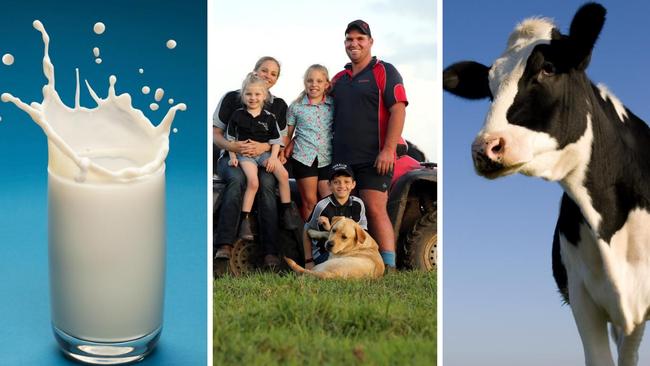
NSW
Don't miss out on the headlines from NSW. Followed categories will be added to My News.
- Coles says its searching for ‘better model’ to help dairy farmers
- When dairy farmers struggle, so do their communities
A lucky group of Australian dairy farmers were given a reprieve this week when supermarket giant Woolworths increased the price of its home branded milk by 10 cents per litre.
The move is expected to return an additional $30 million each year to the 450 Australian dairy farmers who supply Woolworths via its processors Parmalat, Fonterra, Lion and Brownes.
But the harsh reality is there are more than 6000 dairy farmers across the country, with many experiencing drought conditions which have driven up the cost of production.
According to a report released on Thursday by Dairy Australia, increases to the prices of stockfeed and water, along with tough seasonal conditions, has created “extremely challenging circumstances for Australian farmers in 2018/19.”
“Across Australia, the combination of elevated costs and relatively steady milk prices has eroded profitability,” the Situation and Outlook report said.
“This is driving milk production lower in year-on-year terms, as farmers reduce herd sizes, supplementary feeding rates, and in some cases exit the industry.”
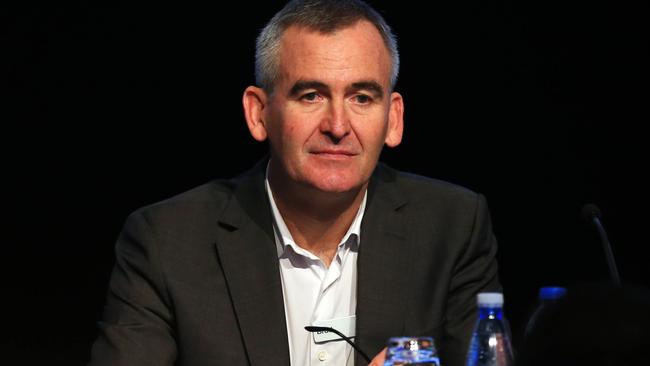
MORE NEWS
Aussie snowboarder killed in Canada
Court halts demolition of Allianz Stadium
Man accused of headbutting junior league official in court
The report forecasts milk production to be down between seven per cent and nine per cent on last years’ numbers, which equates to 8.45 billion litres to 8.65 billion litres this season.
Monday’s decision by Woolworths chief executive Brad Banducci to hike the price of home branded milk affects a small number of NSW dairy farmers, with about 85 of them set to receive an additional $10 million each year.
Mr Banducci said on Monday that accounting firm KPMG would be responsible for auditing the monthly payments to ensure that every cent of the increase goes to dairy farmers.
“In our consultation with industry bodies, including the Australian Dairy Farmers Association, its state members and NSW Dairy Connect, we’ve heard the outlook will continue to be extremely tough for dairy farmers right across the country,” Mr Banducci said.
“This is affecting milk production and farm viability, which is devastating for farmers and the regional communities in which they live. It’s clear something needs to change and we want to play a constructive role in making this happen.”
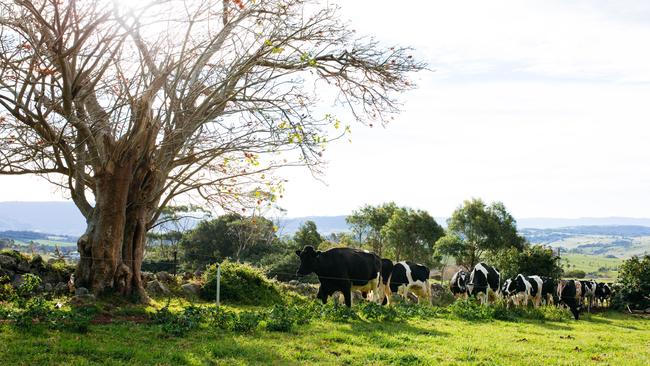
Woolworths is currently the only large retailer to have taken this step, with rivals Coles and Aldi refusing to buckle to sustained pressure and change their pricing of $1 per litre milk.
Australian Dairy Farmers chief executive David Inall pleaded with these companies to raise the price of their home branded milk, to no avail.
“Retailers cannot continue selling cheap milk while simultaneously raising the price of other products to help drought-stricken farmers,” he said.
“The dairy industry has suffered from the debilitating effects of dollar milk for eight years, since Australia Day 2011, and the retailers have an opportunity to come to the table and help us implement change,” Mr Inall said.
Coles chief executive Steven Cain said he would be willing to raise prices and pass the benefits on to farmers, but only if a milk levy applied to all retailers and milk products.
“We want to get to an industry solution as fast as we can that covers all retailers and preferably all milk brands, where we see some additional funds being channelled directly to farmers and potentially keep some held in reserve for a rainy day,” he said.
“I don’t want to join the Woolworths club, so to speak, and leave our customers paying more for milk than some of our competitors’ customers might.”
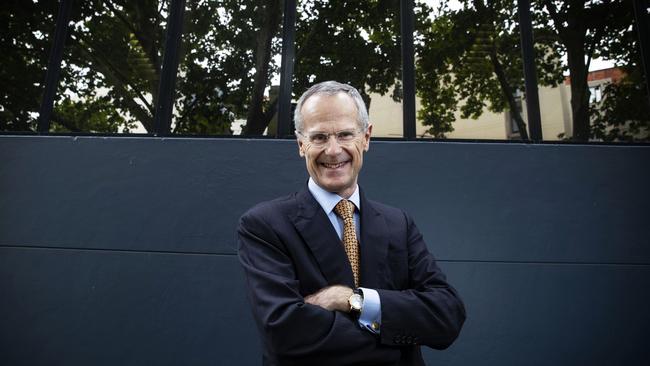
Meanwhile Aldi says the best way for them to increase funds to the dairy industry is by engaging with its milk processors and putting pressure on them to increase the farmgate price of milk.
“Aldi can best support the long term sustainability of the dairy industry by accepting price increases from milk processors that reflect difficult market conditions thereby facilitating its milk processors to pay sustainable prices to dairy farmers,” managing director buying Aldi Australia Oliver Bongardt said.
Rabobank senior dairy analyst Michael Harvey said dairy farmers in NSW currently receive upwards of 50c per litre for their milk — something which is becoming more unsustainable due to the drought.
“The cost of production has escalated for a lot of dairy farmers … to the point where some are making money while others are going through trading losses,” he told Saturday Extra.
Mr Harvey said feed has doubled in price over the past year while water has increased almost threefold.
“Farmers are paying at least $400 per tonne for grain and if you are an irrigation farmer in the Murray Darling basin, then temporary water prices are $500 per megalitre, they would have been at $100 to $200 only twelve months ago,” he said.
“That’s a doubling of your costs where your milk price hasn’t moved to be able to accommodate that.”
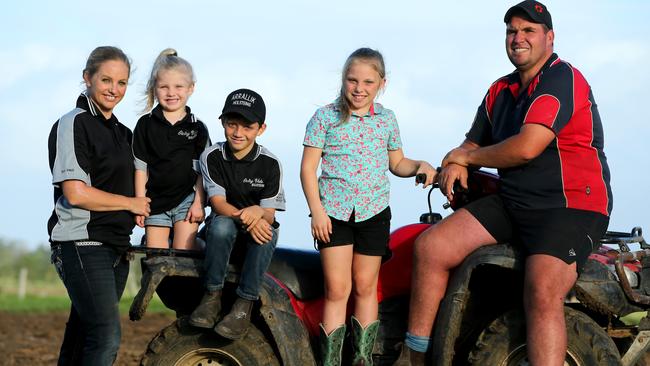
Mr Harvey said most farmers sign a milk supply contract with a processor which would last for about 12 months, which locks in the price of their milk over that period, giving them security.
Farmgate prices are based on the milk fat and protein content of the milk produced on the farm, and unlike many countries around the world, there is no legislative control over the price milk processing companies pay farmers for their milk.
Dairy Australia say since deregulation in 2000/2001 all prices within the industry are set by market forces, with prices varying between milk processors.
The processors were blasted by Australian Competition and Consumer Commission chairman Rod Sims last year for blaming the meagre amount they pay for milk on supermarkets.
“Dairy processors need to be honest with farmers. We have written to a number of processors warning them not to mislead farmers by blaming private label milk contracts for the prices offered for milk at the farmgate,” Mr Sims said following the two year inquiry into dairy pricing and the supply chain.
“We’re concerned this is misleading as the power lies with processors to raise the farmgate price paid to farmers, and then pass these higher farmgate prices on to supermarkets,” he said.
The ACCC’s report found that almost all contracts for the supply of private label milk allow processors to pass-through movements in farmgate prices to supermarkets.
Furthermore, the ACCC concluded farmers are paid the same price regardless whether their milk goes to private label or branded products.
Looking ahead to 2019, analysts say the dairy industry could be in for another rough patch, with drought conditions still in play and the threat of El Nino looming.
Climatologist Greg Browning from the Bureau of Meteorology told Saturday Extra that El Nino has twice the likelihood of returning this winter — a weather pattern which restricts rainfall and can have a severe impact on dairy farmers.
Farmers use the wetter autumn and winter months to set up the season by growing pasture on their land to build a feed wedge, which they can then use in tougher times to feed their stock.
Mr Browning said the threat of El Nino was currently at 50 per cent.
“If we do move into El Nino, we typically do that during the middle of the year, there is quite a strong signal towards drier than average conditions over most of eastern Australia,” he said.
“It involves rainfall deficiencies during the winter months and we also see the rainfall deficiencies continue through spring throughout most of eastern Australia as well,” Mr Browning said.
“NSW generally cops the brunt of it.”
